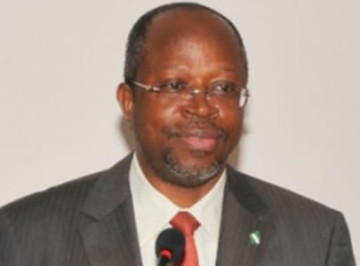Engineers want transparent public procurement system
Transparency should be the watchword in public procurement to enhance the process and encourage accountability, the Association for Consulting Engineering in Nigeria has said.
The Director-General, Bureau of Public Procurement, Mr. Emeka Ezeh, had said a public procurement process must follow due process, be ethical, transparent and fair.
“Honesty, accountability, transparency, fairness and equity must govern the conduct of all persons involved with public procurement, whether as an official of the bureau, as a procuring entity, a supplier, a contractor or as a service provider,” he had said.
Some of ACEN members, who spoke during the induction of new members and a seminar on ‘Enhancing the practice of engineering consultancy in Nigeria through an efficient public procurement process’, noted that the practice had been that infrastructural projects in the country would typically cost more than it would in other countries.
“Historically, the story used to be that projects in Nigeria cost many multiples per unit or kilometre of road, for example, of what they typically cost in neighbouring countries such as Ghana or Kenya,” the President, ACEN, Dr. Temilola Kehinde, said.
According to him, public procurement globally has become a system with processes, rules, standards, guidelines, benefits and penalties for infringements, adding that there should be an attempt to improve efficiency and the effectiveness of the system.
The World Bank Lead Procurement Specialist, Chief Bayo Awosemusi, said a public procurement process could only be functional if it achieved the objective of obtaining value for money, which required strategic planning, right approach to the market, sound risk management plan and evaluation criteria to determine the most advantageous bid.
He noted that with regards to the procurement of works, the engineering profession was required to be involved at every stage, and accounted for 37 per cent of the procurement cadre, hence, the need to enhance the capacity of engineering consultants in the country.
Awosemusi said, “A well-functioning procurement system in a country is critical to the timely delivery of the inputs required for the delivery of services. An efficient public procurement system is one that delivers the inputs timely and in a manner to meet specific timeliness that has been set for service delivery.
“The current Nigerian procurement process could be improved upon in areas such as addressing inadequate capacity of procurement practitioners; reducing unnecessary approval procedures, which lead to delay and do not add much value, and educating and penalising unethical behaviours.”
Awosemusi stated that the role of engineering consultants was to help the public service attain the concept of value for money in public expenditure, especially in procurement of works.
He added that to make the process of public procurement more transparent, there was a need for consultants to acquire skills in latest technologies.
According to him, complaints have been heard from local consulting firms that the public sector prefers to employ foreign consultants rather than using indigenous expertise.
“There is a strong belief among local consulting firms that the country has virtually got all expertise it needs except for very few specialised assignments involving advanced technologies. In these few specialised areas, Nigerian firms are encouraged to form joint ventures with foreign firms,” he said.
The President, Nigerian Society of Engineers, Mr. Ademola Olorunfemi, said that as a specialised profession, engineering consultancy required high level of expertise acquired over a long period of practice in the various engineering disciplines
He stated that the nation was currently facing several challenges in procurement of engineering consultancies and projects, hence the need for change.
Olorunfemi said that since projects under public procurement were usually large-sized with heavy costs and prone to risks, it was necessary for those involved to have sound technical and procurement competencies to enhance the practice and reduce deficiencies to the barest minimum.
“A sound procurement consequently ensures compliance with standards thus ensuring quality at a specified cost, while avoiding overruns and delays in project completion,” he said.
He added that the NSE was a strong advocate of the general principles of public procurement such as transparency, integrity, economy, openness, fairness, competitiveness and accountability, particularly as they applied to engineering consultancies and projects.
The General Manager, Lagos State Public Procurement Agency, Mr. Akin Onimole, stated that it had become necessary to review the impact of public procurement on the practice of engineering in the country and strategise on how to improve on it.
According to him, the concept of public procurement was institutionalised when it became an Act of Parliament in June 2007, adding that about 22 states had passed laws, which were at various stages of implementation.
He said the Lagos States Public Procurement Agency, which was created in 2012, aimed to ensure the application of fair and competitive value for money standards and practices for the procurement and disposal of public assets and services.
Kehinde, however, noted that order was beginning to creep into a regime of blatant shadiness, riddled with graft and corruption, but that the practice of public procurement remained a work in progress.
He said, “Organised public procurement is now the law of the land. The playing field for contract administration is now level and every player should be assured of equity and transparency.
PUNCH.


